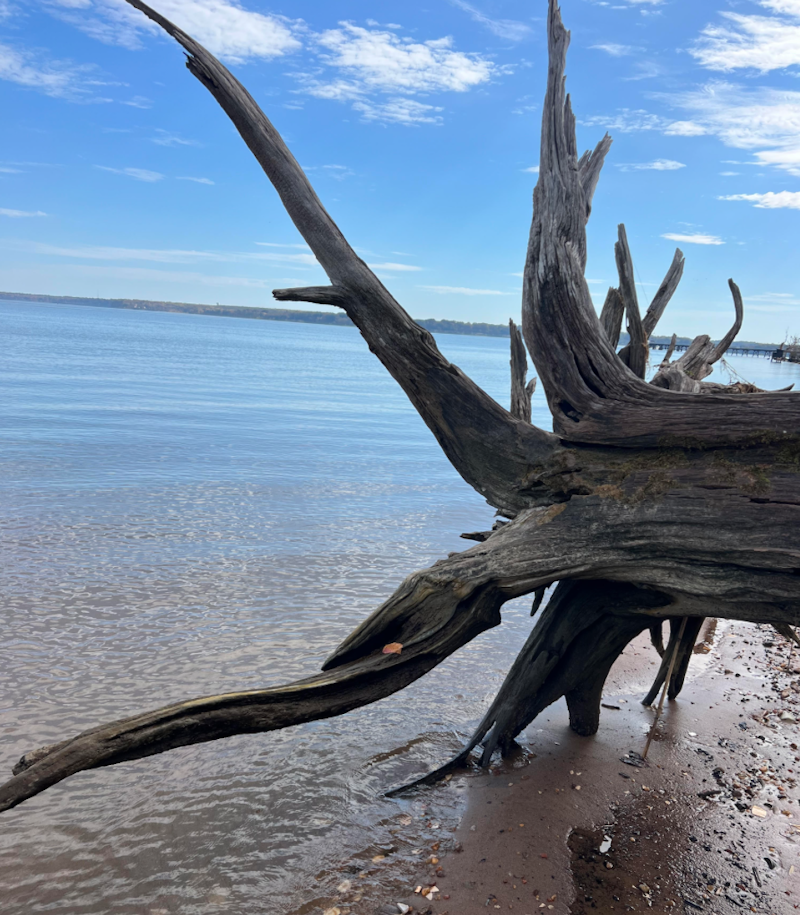This weekend I’m in Santa Cruz, California for the 15th annual Santa Cruz Ocean Art Festival at the historic Cocoanut Grove Beach Boardwalk. The location was in the news in January when storms battered the fragile coastline where the ocean lies just feet from the boardwalk.
I’m speaking at the festival on “Sea Glass: A Diminishing Resource.” There are a number of reasons why finding beach treasures is more challenging— perhaps the most obvious is the switch from glass to plastic in beverage manufacture. Chances are people in a century won’t treasure finding “shards” of a 2011 Gatorade bottle or 2020 Monster Energy drink can. More critically, they won’t be finding anything because 50-100 years from now, most coastlines will be completely gone from coastal erosion.
That’s not controversial, it’s just reality. I get a little nervous speaking on it because I don’t want to get into some kind of “chicken little” debate with climate-change deniers, so my slide show sticks to facts: here are some photos of islands in the Chesapeake Bay that used to be there and have sea glass, and now they’re gone because they’re underwater. In what way would you like to deny that? Here’s a photo of a beach I used to sea glass hunt on ten years ago. It’s gone now. How do you deny it?
Once, an islander where I live told me, “The water isn’t rising, the island is sinking.” As though we need to simply toss some heavy items—old cars and sofas?—overboard so that she could be more buoyant again. Also we better quit building houses, those seem pretty heavy.
Anyway, sea glass is a diminishing resource for many reasons; one is that due to social media it’s become a competitive sport. Who has the best spots, who has the most followers showing themselves finding the best treasures, etc. There are people charging lots of money to take people sea-glass hunting at places they discovered through questionable means, often from locals who’ve now lost their resources to run their businesses on tiny islands which now have overpriced maps telling people how to find the sea glass. A supply of sea glass at a certain spot, for example Fort Bragg in California, is finite, and when spots get blown up by social media and the need of some to become famous on YouTube or other social media, the sea glass is even more desirable and is eventually depleted.
None of this was happening when I first fell in love with the idea of discovering the history and provenance of how one marble washed up on one shoreline over 20 years ago that started me on a journey of learning and sharing finds. It was passion for me, not some twisted notion of “sea glass celebrity” that plagues many today. Though there can be a positive sense of community in one way, the bickering, greed, and negativity often outweigh the good, for example in Facebook groups where blocking and hostility are often the norm.
I’ve pulled away in recent years. I’d started a beachcombing museum, trying to rescue a nonprofit that planned to close, only ending up having to close the museum and nonprofit myself a few years later due to a lack of support from the beachcombing community. Although some people were happy to help with an initial fundraiser in order to open, virtually no one wanted to part with their own sacred beach finds to exhibit. I couldn’t do it all on my own. I’m in the middle of writing a memoir on my 20 years in the beachcombing “community.” It’s unbelievable the things I saw happen. I’ve never stopped being shocked at the “every person for themselves” mentality of so many, and have stories to share.
It’s just time to step back. After publishing the book I’d love to visit shows again for signings, and I love hosting the “beachcombing table” at local shows. There are so many wonderful people in the community I’ve met and befriended over the years. I started my hidden beach treasure candle company during the pandemic; having discovered candlemaking was uncovering one of my life’s greatest passions and the beach finds inside those candles are becoming more and more rare as we lose our fragile coastlines.

